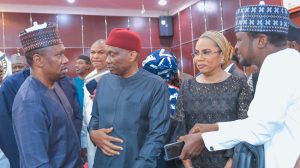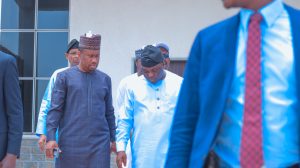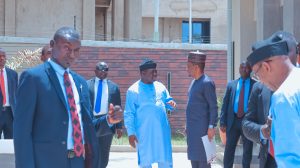News
Reintroduced national anthem could have prevented banditry – Akpabio
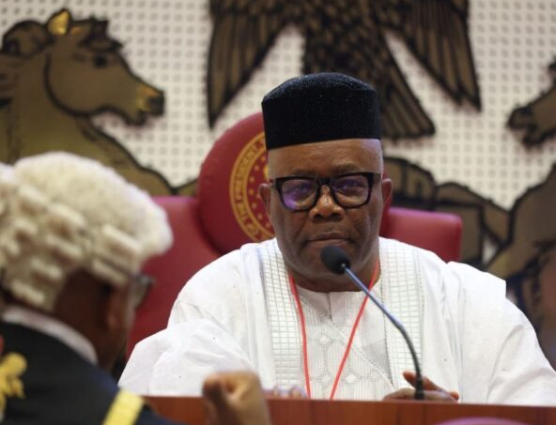
By Kayode Sanni-Arewa
Senate President, Godswill Akpabio, has said the reintroduced national anthem, “Nigeria, We Hail Thee”, could have prevented banditry and insecurity if the country had retained it.
Recall that the Senate and the House of Representatives passed the National Anthem Bill 2024 to revert to the old national anthem, “Nigeria, we hail thee”, which was abolished in 1978.
The National Assembly passed the bill to swap the national anthem from “Arise, O Compatriots” to “Nigeria, We Hail Thee.”
The bill, which speedily passed first and second readings on the same day, was assented to by President Bola Tinubu, making it the new anthem of the country.
During a visit to the Nigeria Institute of Legislative and Democratic Studies in Abuja on Tuesday, Akpabio said the reintroduced anthem would foster unity, patriotism and love among Nigerians.
Akpabio said those labelling the re-introduced anthem as an element of colonialism, don’t understand the country’s history and are ignorant of the law.
According to the Senate president, a panel made up of Nigerians was set up in 1959, which received inputs from all over the world regarding the anthem and approved the reintroduced anthem then.
He said: “The other impactful bill signed by the National Assembly is the reverting to our old national anthem.
“A lot of people are not aware that there was a panel set up and made up of Nigerians to receive input from all over the world in 1959.
Related News
Purpose and practice of National Anthem
Akpabio chides NOA for circulating wrong national anthem
NOA released correct national anthem, DG replies Akpabio
“So when people are saying we’re bringing in colonial anthem, they need to look into the history of “Nigeria, we hail thee”.”
“If we had kept to that anthem, we probably would not have banditry today in Nigeria because if you take your neighbour as your brother, you will not want to kill him.”
Akpabio also revealed that more than 30,000 Nigerian students have been selected to benefit from the student loan scheme.
The Senate President said the Student Loan bill allows the children of the poor and underprivileged persons in the country to obtain higher education without the financial burden.
According to Akpbaio, the bill was one of the most important pieces of legislation passed by the tenth Assembly of the country.
He said: “One of the most important bills for the tenth Assembly was the bill sent to us by President Bola Tinubu. The Student Loan Bill enables vulnerable Nigerian students, the less privileged, to obtain higher education.
“And as I speak to you now, over 30,000 Nigerian students have already been selected to benefit from that scheme.
“That is one of the bills I will say appeal to me the most.”
PUNCH.
News
Just in: Boko Haram IED Blast Kills Seven Along Maiduguri-Damboa Road
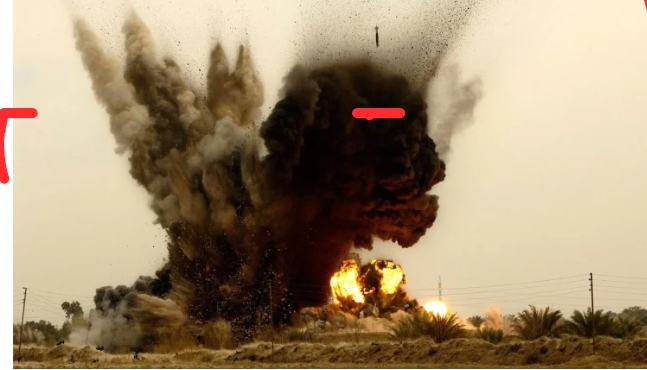
By Kayode Sanni-Arewa
No fewer than seven people lost their lives on Saturday following the detonation of an Improvised Explosive Device (IED) planted by Boko Haram terrorists in Borno State.
The deadly incident occurred along the Maiduguri-Damboa Road, a notorious route that cuts through the Sambisa Forest—an area long plagued by insurgent activities.
The victims were part of a convoy of vehicles being escorted by the military from Damboa to Maiduguri.
According to eyewitness accounts and local sources, the explosion struck as the convoy—organized to provide safe passage through the volatile region—was underway. Several other passengers sustained varying degrees of injuries and were rushed to a hospital in Maiduguri for urgent treatment.
The Maiduguri-Damboa Road serves as a vital link between the state capital and several local government areas in southern Borno, including Chibok and Gwoza.
For years, the route remained closed to civilian traffic due to persistent terrorist threats. However, under the administration of Governor Babagana Zulum, the road was reopened, with military escorts deployed to accompany travelers twice weekly after clearing the area for explosives.
Saturday’s attack raises fresh concerns about the safety of the corridor, despite consistent military presence. The blast also comes just days after Governor Zulum publicly raised alarm over renewed Boko Haram activity in the state, highlighting the persistent threat the group poses to peace and development in the region.
Authorities are yet to release an official statement on the incident, while investigations and security operations in the area continue.
News
Insecurity: Criminals Cart Away NSA Ribadu’s Office Hilux During Juma’at Prayer In Abuja
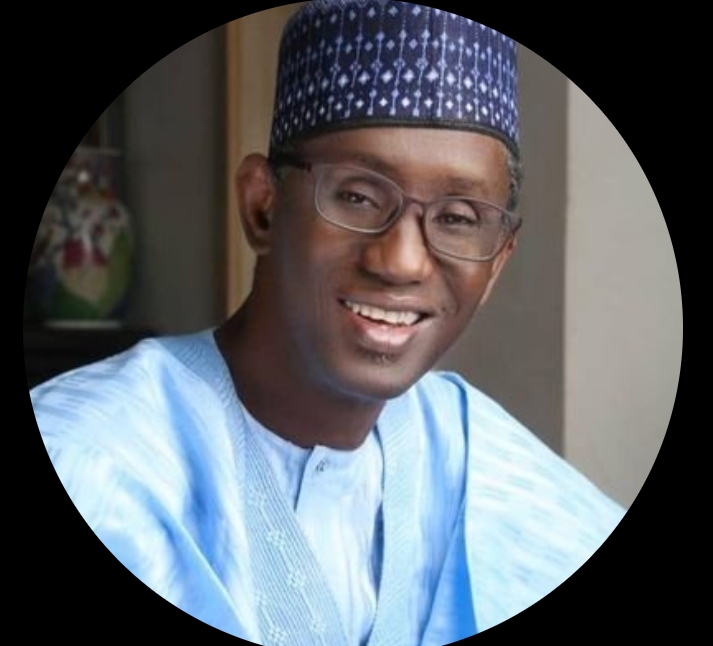
By Kayode Sanni-Arewa
The Federal Capital Territory (FCT) Police Command has initiated a search following the theft of a black Toyota Hilux vehicle belonging to the Office of the National Security Adviser (ONSA), Nuhu Ribadu, which was stolen during Friday’s Juma’at prayers in Abuja.
It was gathered that the vehicle was parked around 1:05pm opposite the Abuja Municipal Area Council (AMAC) complex in Area 10, while the official attended prayers at a nearby mosque.
Security source, Zagazola Makama, disclosed the incident via his X (formerly Twitter) handle, revealing that the ONSA official returned from the mosque only to find the vehicle missing.
According to him, a sources said the theft was immediately reported to the Garki Police Division at approximately 2:00 p.m., leading to a swift response by law enforcement.
Meanwhile, the FCT Police Command promptly activated a stop-and-search operation at various checkpoints and across all entry and exit points in the capital city.
Police authorities confirmed that investigations are ongoing and all efforts are being made to apprehend the culprits and recover the vehicle.
The Command said it had intensified efforts to track down the fleeing suspects and recover the stolen Hilux.
News
Governor Kefas Inaugurates Taraba State Investment International Summit Committee+Photos
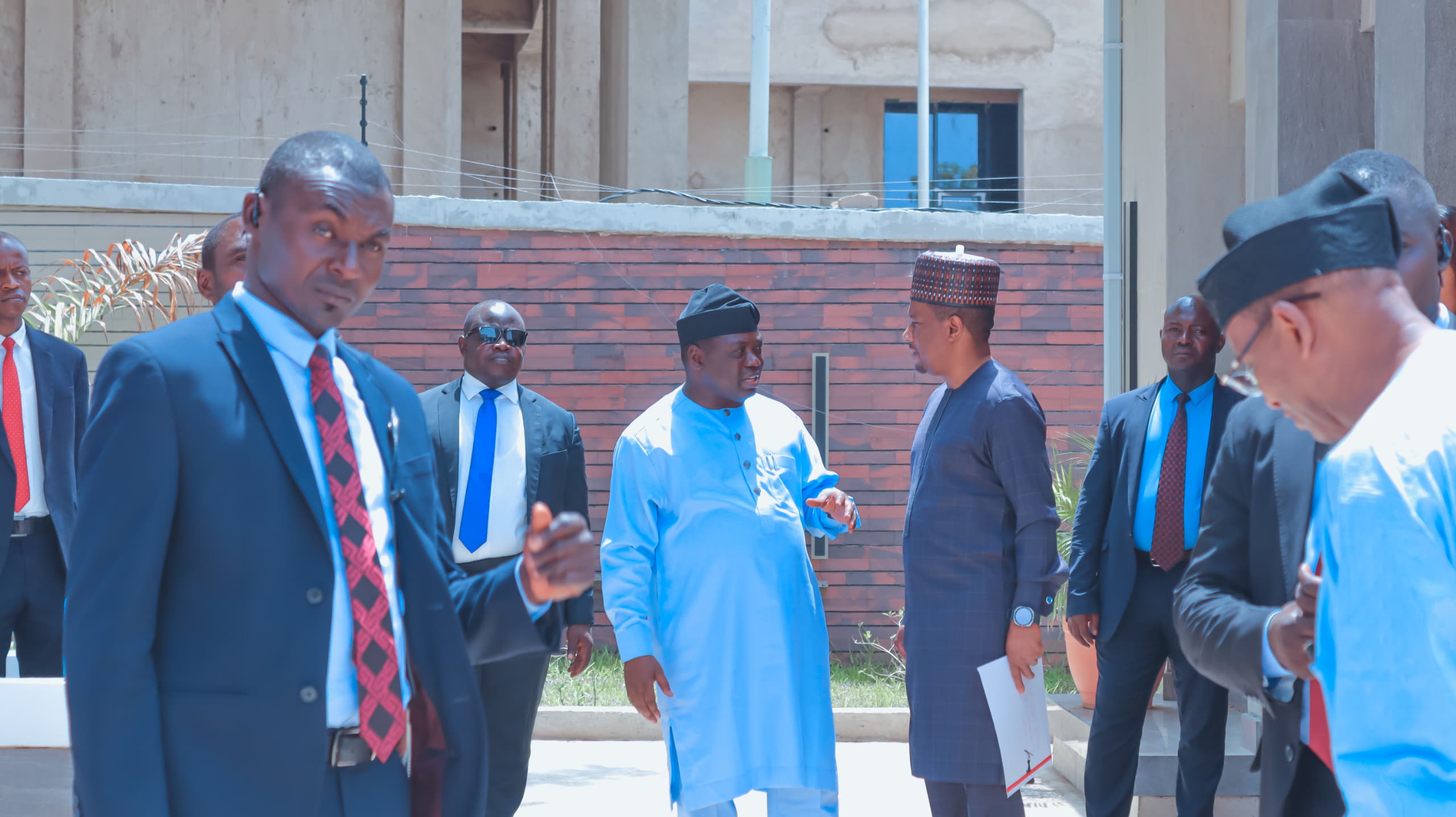
In a significant step towards enhancing investment opportunities in Taraba State, Governor Dr. Agbu Kefas on Saturday inaugurated the Committee for the International Investment Summit at the Executive Chamber of the Government House in Jalingo.
Senator Manu Haruna, former deputy governor of Taraba State and a serving Senator, a seasoned administrator who chairs Taraba State Mobilization and development Investment Committee expressed gratitude to Governor Kefas for his visionary leadership in organizing an international summit aimed at attracting investment to the state.
He highlighted the potential this initiative holds for fostering economic growth and development in Taraba State.
Rt. Hon. Ndudi Elumedu the Chairman of the Taraba State International Investment Summit Committee, emphasized that such summits are crucial for stimulating economic activities and creating opportunities..
According to him, the summit will play a vital role in showcasing Taraba’s investment potential, thereby attracting both local and international investors.
The committee is expected to work diligently to prepare for the summit, ensuring that it positions Taraba State as a favorable destination for investment and economic collaboration.
Governor Kefas remains committed to promoting policies that support economic diversification and sustainable 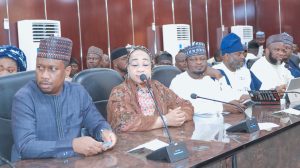
This inauguration marks a positive development in Taraba’s ongoing efforts to enhance its economic landscape and improve the standard of living for its residents.
-
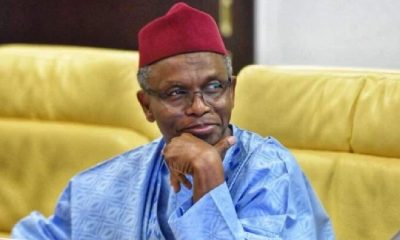
 News11 hours ago
News11 hours agoWe only had lunch with Buhari not 2027 politics -El-Rufai
-
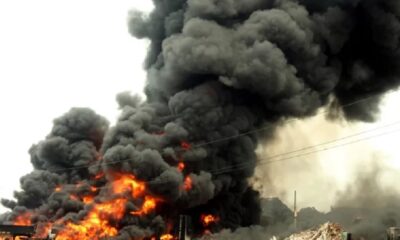
 News11 hours ago
News11 hours agoSad! Explosion rocks Lagos
-
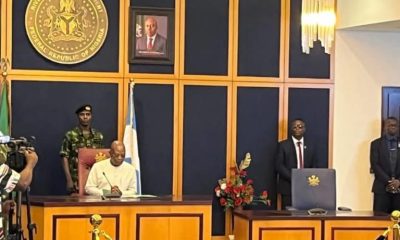
 News10 hours ago
News10 hours agoIbas gives reasons why Sole Administrators were appointed for Rivers councils
-

 News11 hours ago
News11 hours agoParts of Abuja, Niger in total darkness -AEDC confirms
-

 News9 hours ago
News9 hours agoUS embassy announces new requirements for visa interviews for Nigerian applicants
-
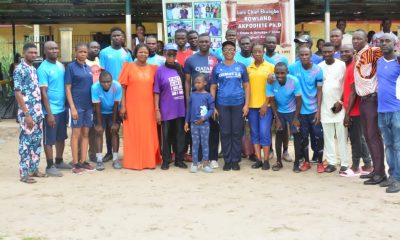
 News6 hours ago
News6 hours agoOERAF Rounds Up Late Chief Ekuogbe Rowland Akpodiete’s remembrance with Novelty Match
-
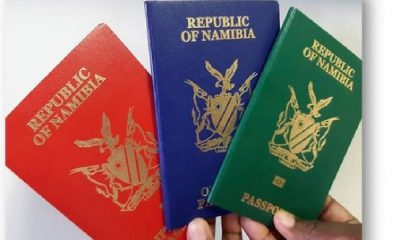
 News9 hours ago
News9 hours agoFive countries with easy work visas in 2025
-

 Foreign9 hours ago
Foreign9 hours agoTrump urges Russia to ‘get moving’ on Ukraine as Witkoff meets Putin


